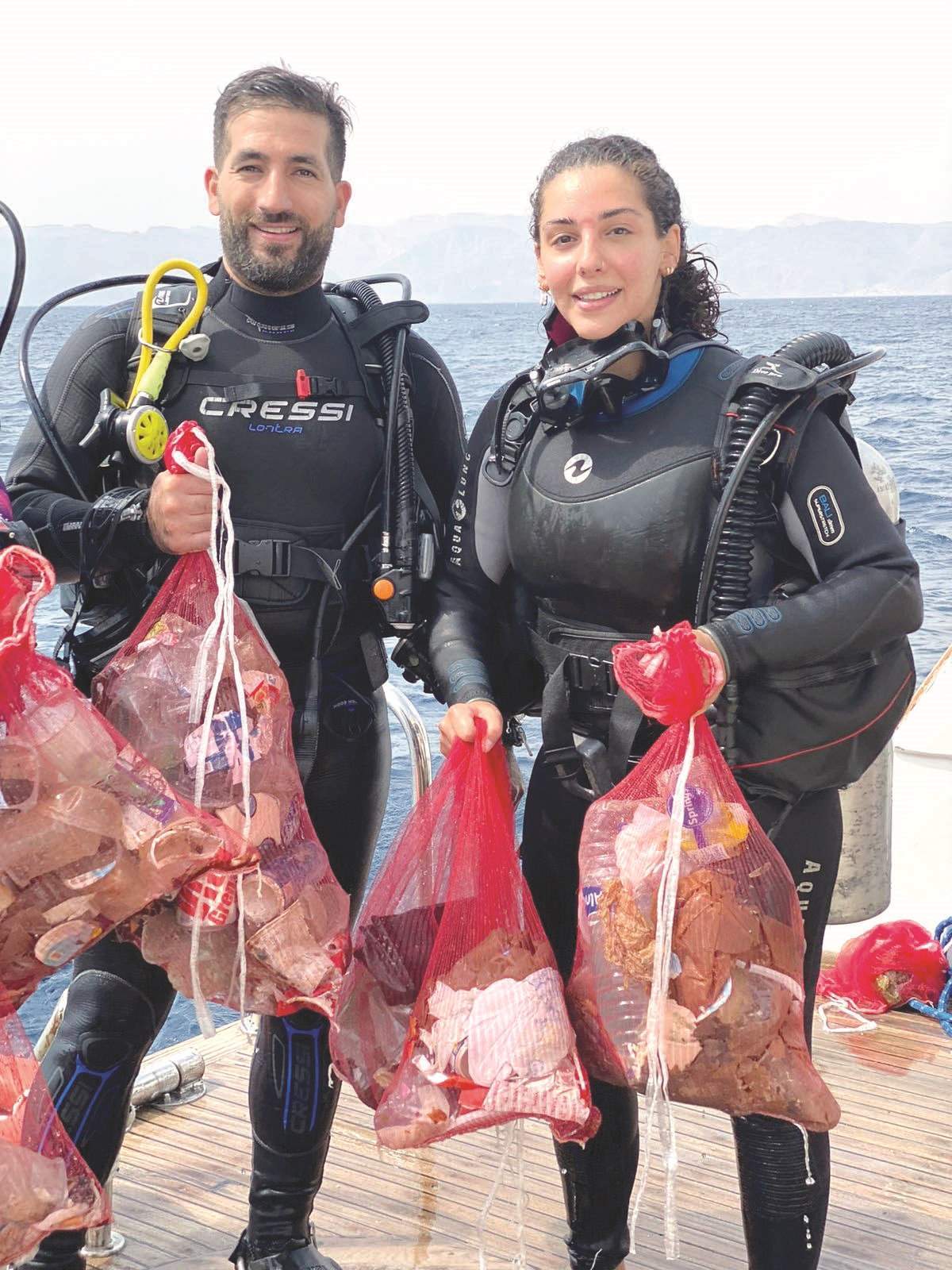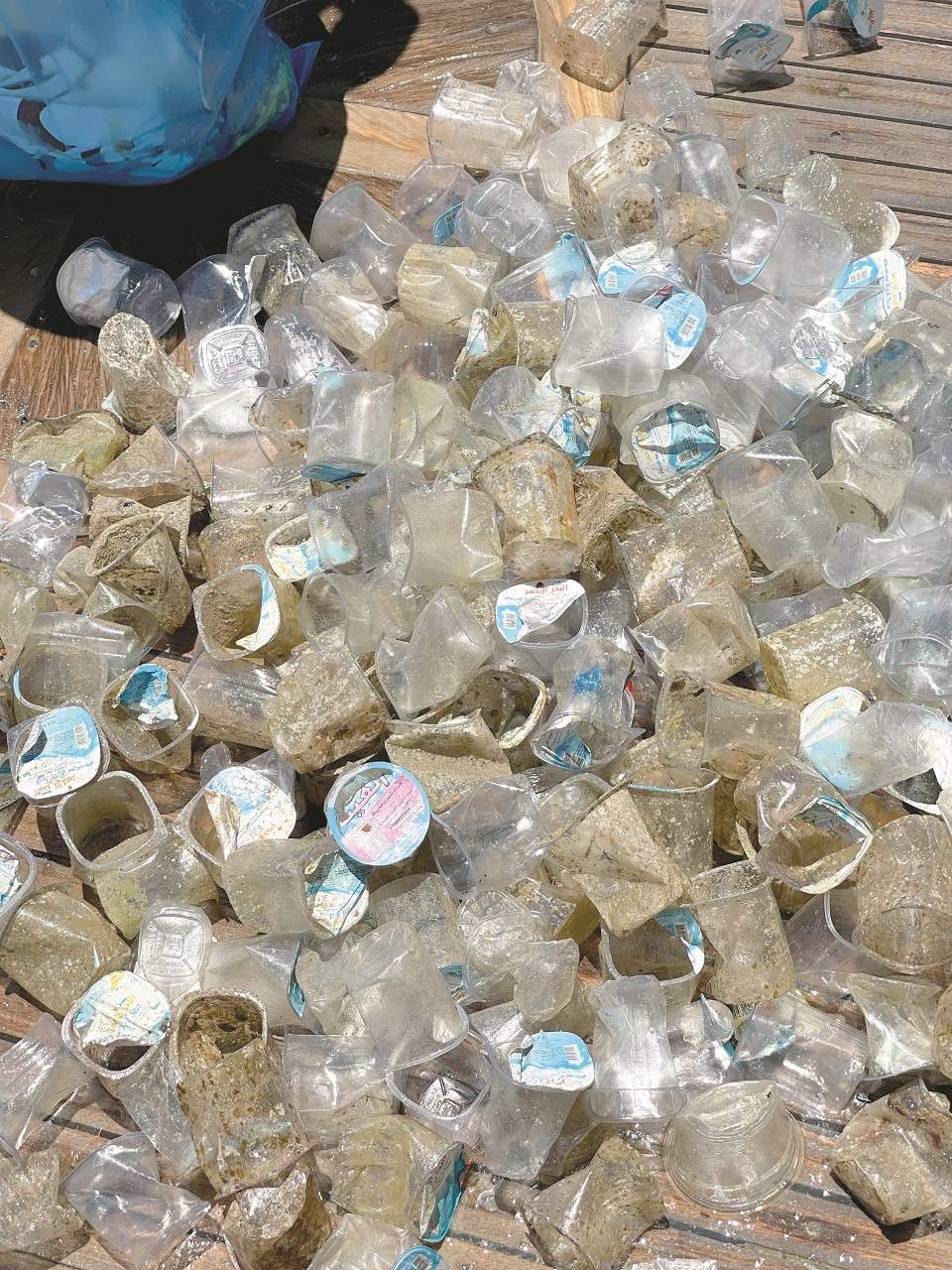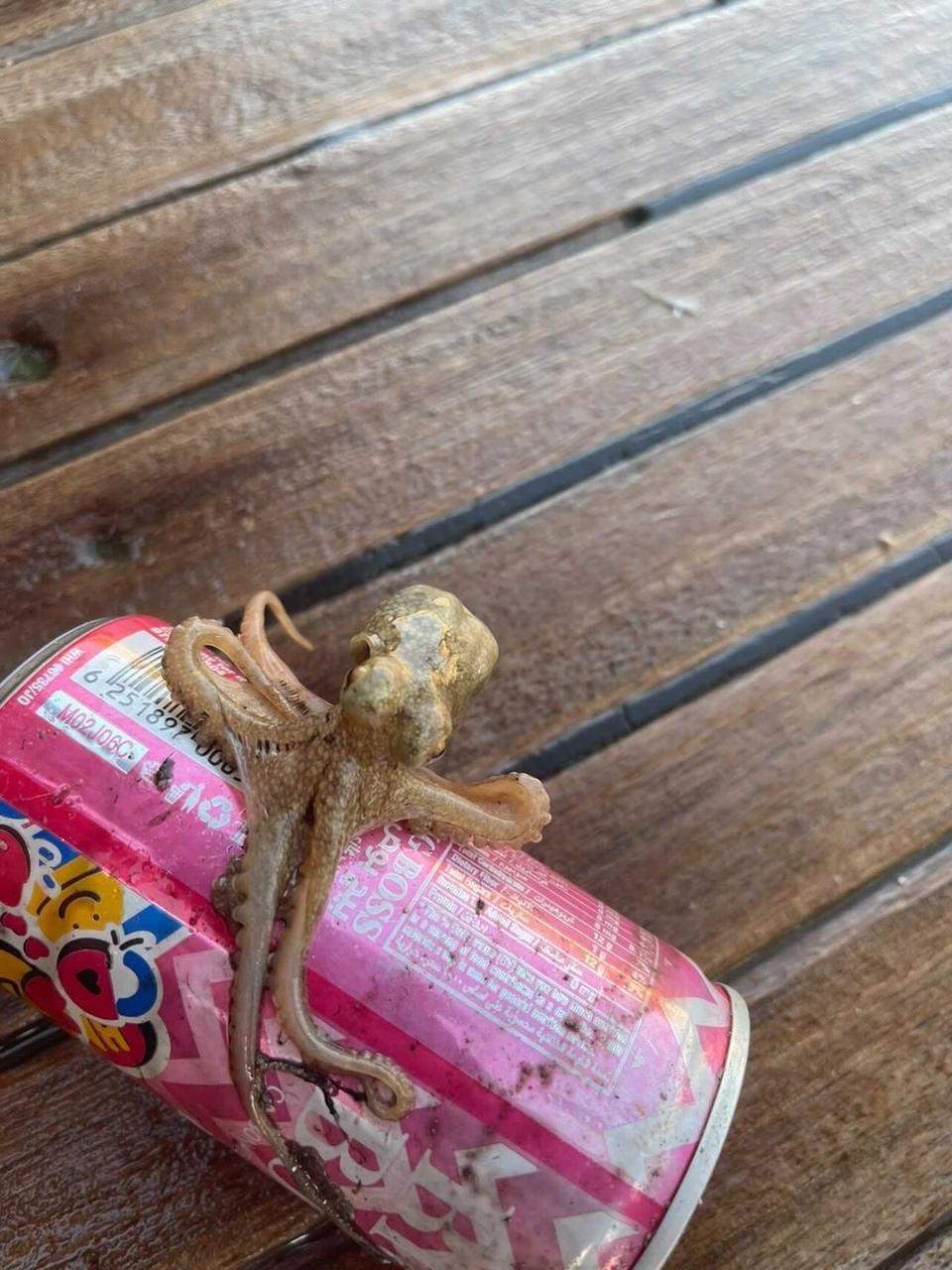AMMAN — The ocean, a source of over half of
Earth’s oxygen, is considered the world’s lifeline. But with roughly 12.7 million tonnes of plastic flowing into the ocean annually, it seems as though humanity is pulling the plug, and fast.
اضافة اعلان
For Jordanians, the problem seems so far removed that an “out of sight, out of mind” concept has been adopted, but a simple look at
Aqaba shows otherwise.
Seif Al Madanat and Beisan Alsharif are two certified divers that both explore the waters around Aqaba frequently. During a chance meeting in the city last year, they found out that both of them compile trash while in the sea.
“It’s very common for a diver to collect trash underwater, the culture of keeping the waters clean is there, at this point we’re trying to create a sustainable movement where we dive for the purpose of ridding the sea of trash,” said Alsharif, in an interview with
Jordan News.
Al Madanat drew parallels between the pollution he was seeing in Aqaba, and what he had found in 2019, while diving Diani Beach, Kenya.
“It was a very clean beach, somewhere you wouldn’t expect to see lots of trash, but around sunset the whole beach turned into a dumpster: all types of plastic and waste. Turned out hotel staff would clean it every morning before guests would head down to the beach,” said Al Madanat.
 The founders of Project Sea, which organizes dives to pull trash from the water. (Photos: Handouts from Seif Al Madanat)
The founders of Project Sea, which organizes dives to pull trash from the water. (Photos: Handouts from Seif Al Madanat)
Around dusk, Al Madanat detailed how the ocean regurgitates the plastic dumped into it when the tide is high.
He points out that the problem at hand has more to do with disposal rather than culture.
After spending a week diving and retrieving trash as odd as mansaf plates, pajamas, and ashtrays, they decided to take action. Al Madanat introduced the idea of regularly organized cleanups to Alsharif, who pushed him to pursue the concept; the only drawback was “finding a way to keep it sustainable,” she said.
Because of the costly nature of diving, cleanups aren’t done as frequently. To do something more sustainable, they partnered with Herb + Design, a Jordanian natural products company, and in February of this year, created a candle called sea mist candle 601.
“Most of the proceeds go to cover cleanup expenses including boat rentals, equipment, air tanks, mesh bags among other expenses,” she said
Alsharif explained how they initially gave the candle to friends as gifts, but then, “People fell in love with the idea of conserving marine life and started promoting it, it was great; we had sold 200 candles in no time.”
Their first official cleanup dive took place in June of this year and was entirely funded by profits from the candle sales.
“Our first cleanup included people from nine different nationalities and 50 percent were woman; something we rarely see since diving is a male-dominated activity in our region,” Al Madanat said.
“The female diving community is growing and following our cleanup activities, the number of females exploring diving as a hobby has grown so much,” added Alsharif.
 The founders of Project Sea, which organizes dives to pull trash from the water. (Photos: Handouts from Seif Al Madanat)
The founders of Project Sea, which organizes dives to pull trash from the water. (Photos: Handouts from Seif Al Madanat)
Divers from China, Sweden, Austria, Armenia, the UK, and the US have joined in on the cleanup effort; some already in Aqaba, and some specifically fly in for the initiative.
The pair are committed to cleaning 28 diving sites in Aqaba. Each cleanup requires two dives and two separate events, which totals up to four cleanup dives for basic cleaning.
The cleaning takes place in shallow areas to ensure the safety of the diver, as well as the sea.
“If a piece of trash is left for too long it becomes part of the ecosystem and soft corals start forming and growing on it so you are no longer able to remove that piece of waste,” Al Madanat said.
Trash is relatively new in shallower areas, making it easier and more efficient for a diver clean these areas. To clean at depth, a diver must be advanced and the air tank requires a different mix, making the jaunt not only costly, but also cutting an hour-long cleanup time by roughly half an hour or a third.
All divers must be certified and experienced, as well as comfortable and competent enough for the task at hand.
On their first cleanup, Al Madanat and AlSharif bought mesh bags and pickers to retrieve trash underwater, without getting too close to the corals and subsequently harming or killing them.
Upon returning to the same dive sites that were previously cleaned, the pair said that they instantly saw the impact of their efforts.
 An octopus is seen on a can that was taken from the sea in this undated photo. (Photo: Omar Madain)
An octopus is seen on a can that was taken from the sea in this undated photo. (Photo: Omar Madain)
For their second round, they targeted a location without direct access to the beach, and what they found; to their dismay, was an egregious amount of litter ranging from handheld grills to candles, to socks, to empty soda and beer cans.
“When we were sorting out the trash, we found a juvenile octopus escaping from one of the cans. We put it back. It’s daunting to see water creatures adapting and adjusting their native habitats because of our waste,” Al Madanat said.
‘Not only here to remove trash’
On their third unofficial cleanup, the two were invited to clean up at Ayla, and to their collective surprise, Alsharif was the only female among the 11 divers participating.
“Our initiative taps on many pillars. Inclusion and female involvement is among the top ones. I have been applauded by an endless number of females for being the only female diver at our last event during the “World Clean Up Campaign,” in September.
This past Tuesday, the duo collaborated with the world’s largest female dive community, “Girls That Scuba,” for a female-only cleanup dive.
The excursion highlighted how significant the single-use plastic issue is in the
Kingdom. The dive resulted in nearly 2,000 pieces of trash being removed from the sea.
The team is planning to go bigger, they have their eyes set on a global movement not just involving cleanups, but also preliminary awareness campaigns in schools and through children’s books, as well as pushing for accountability from plastic companies.
ProjectSea is rapidly gaining traction as companies are lining up to sponsor the dives.
“We’re not only here to remove trash, we want to create a culture of awareness and a sense of responsibility for people. We are all responsible for whatever is going on. Education and creating habits take time but we must start somewhere,” Al Madanat said.
Since plastic production began booming in 1950, only 9 percent of an estimated 6.3 billion tonnes of plastic have been recycled, according to a 2017 paper published in Science Advances, from the University of California, Santa Barbara.
COVID-19 has worsened the use of plastics, with more single-use plastics in the form of PPE being created in 2020. This has made a mark on climate change and sea pollution. Although it may take a generation or two, Al Madanat stated that the important thing is to act now while there is still time.
The divers both have busy work and personal lives, but they underline that paying it forward and doing your part, no matter how busy you are, is possible.
“I do believe in the ripple effect. When you throw a stone in the sea it makes those concentric circles and it gets bigger and bigger, what we’re doing; we’re throwing two different stones, in two different directions and the noise is actually bigger than if I did it myself or Beisan did it,” Al Madanat said.
“It’s nice to see people coming together to make a difference. That’s a big part of what we do, without our community we wouldn’t have made it. It’s crucial we keep the momentum going, and that’s what all our supporters and partners have been doing.”
Read more Lifestyle



